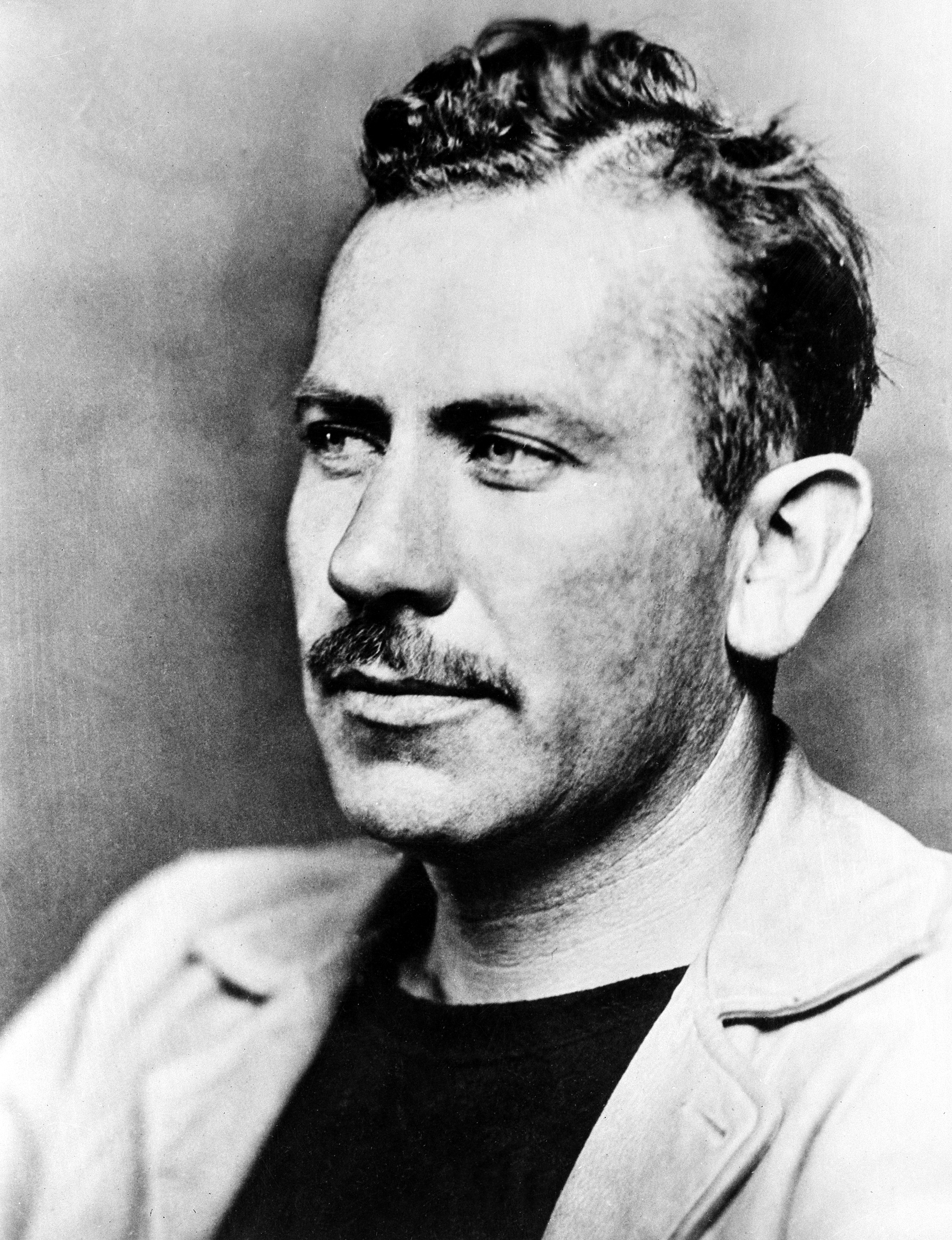Steinbeck, John (1902-1968), an American author, won the 1962 Nobel Prize in literature. Steinbeck’s best-known fiction sympathetically explores the struggles of poor people. His most famous novel, The Grapes of Wrath (1939), won the 1940 Pulitzer Prize. The novel tells the story of the Joads, a poor Oklahoma farming family, who migrate to California in search of a better life during the Great Depression of the 1930’s. Steinbeck effectively demonstrated how the struggles of one family mirrored the hardship of the entire nation. Through the inspiration of the labor organizer Jim Casy, the Joads learn that the poor must work together in order to survive. See Grapes of Wrath, The .

Steinbeck set much of his fiction in and around his birthplace of Salinas, California, where he was born on Feb. 27, 1902. His first novel, Cup of Gold (1929), is based on the life of Sir Henry Morgan, a famous English pirate of the 1600’s. Steinbeck’s next work, The Pastures of Heaven (1932), is a collection of stories about the people of a farm community near Salinas. In this work, Steinbeck focused on the struggle between human beings and nature. Tortilla Flat (1935) deals with migrant workers and poor farmers. In Dubious Battle (1936) realistically portrays labor strife in California during the 1930’s. Of Mice and Men (1937) is a short novel that Steinbeck adapted into a popular play in 1937. It is a tragic story about a physically powerful farmworker with mental retardation and his best friend and protector. See Of Mice and Men . Steinbeck’s other short novels include The Moon Is Down (1942), The Red Pony (1945), and The Pearl (1947). A collection of his short stories was published as The Long Valley (1938).
Steinbeck’s most ambitious novel is East of Eden (1952). It follows three generations of a California family from the 1860’s to World War I (1914-1918). The title refers to the family’s strife, which parallels the conflict between the Biblical figures of Cain and Abel. Steinbeck’s last novel was The Winter of Our Discontent (1961). It is a modern story of moral failure.
Steinbeck wrote the humorous novels Cannery Row (1945), The Wayward Bus (1947), Sweet Thursday (1954), and The Short Reign of Pippin IV (1957). In his nonfiction work Travels with Charley (1962), Steinbeck described a cross-country trip with his pet poodle. A selection of Steinbeck’s other nonfiction was published in 2002, after his death, as America and Americans. Steinbeck retold legends about King Arthur in The Acts of King Arthur and His Noble Knights, left unfinished at his death and published in 2007. Steinbeck also wrote screenplays for several films, notably Viva Zapata! (1952). He died on Dec. 20, 1968. From 1994 to 2007, the Library of America published authoritative texts of 18 of Steinbeck’s books in four volumes.
